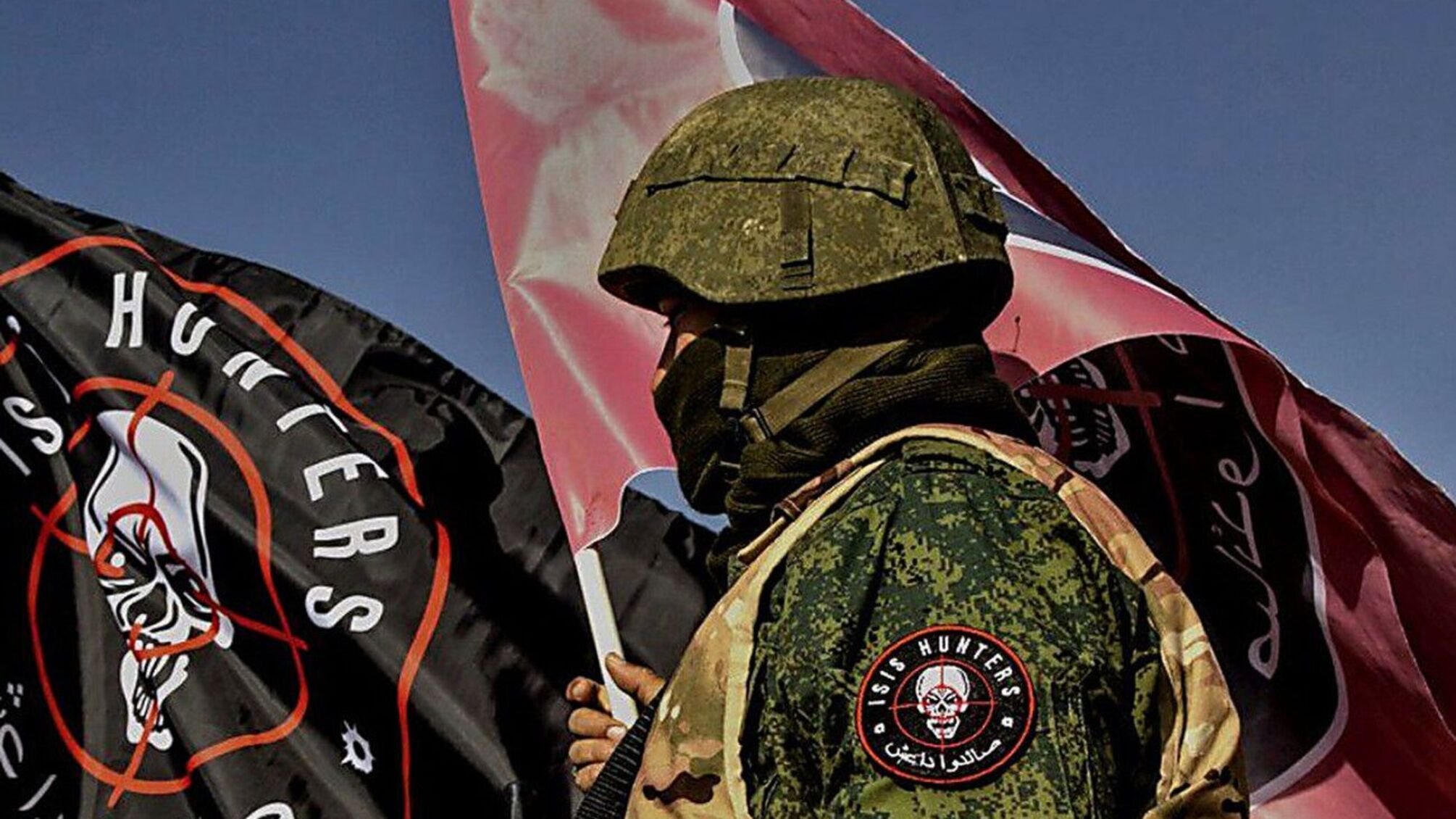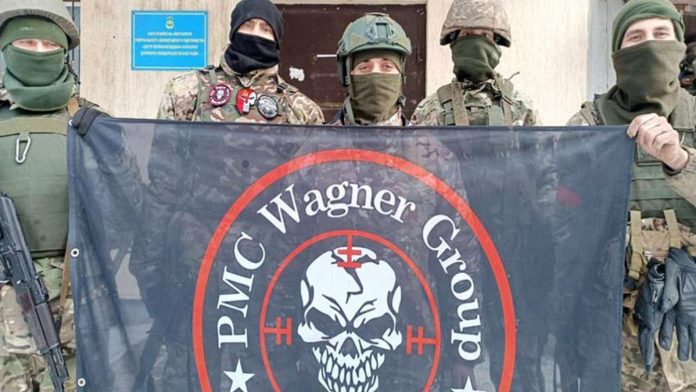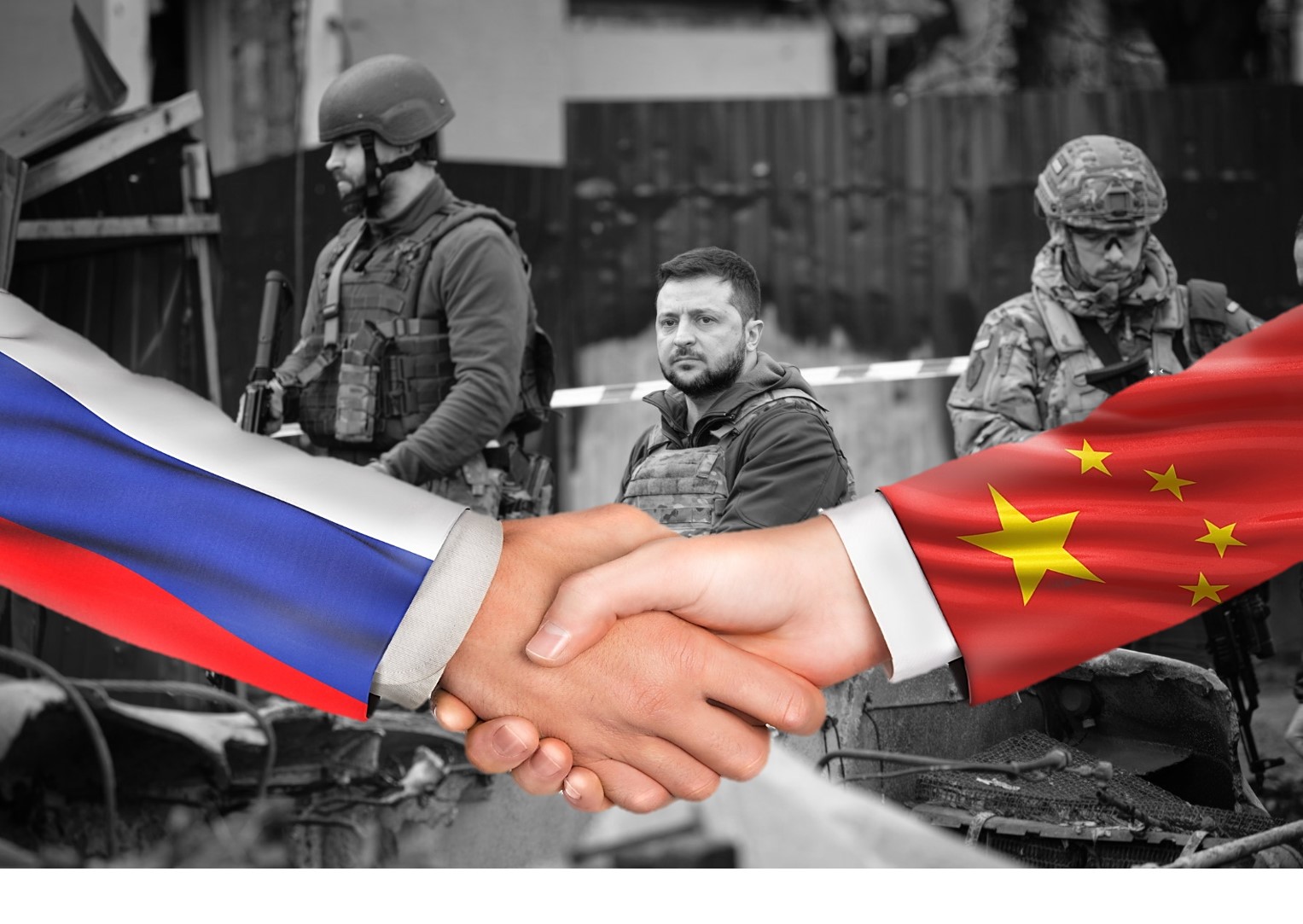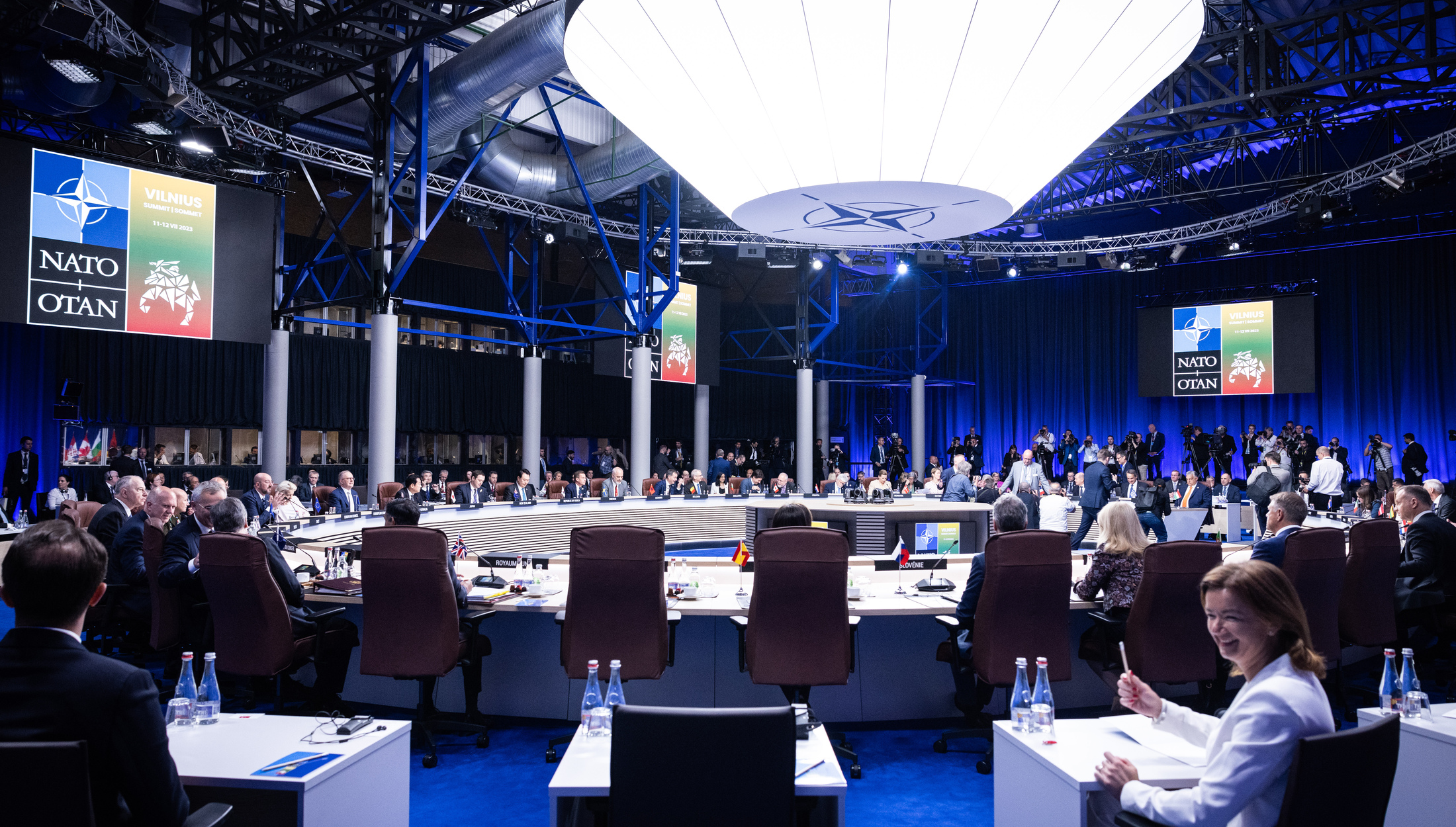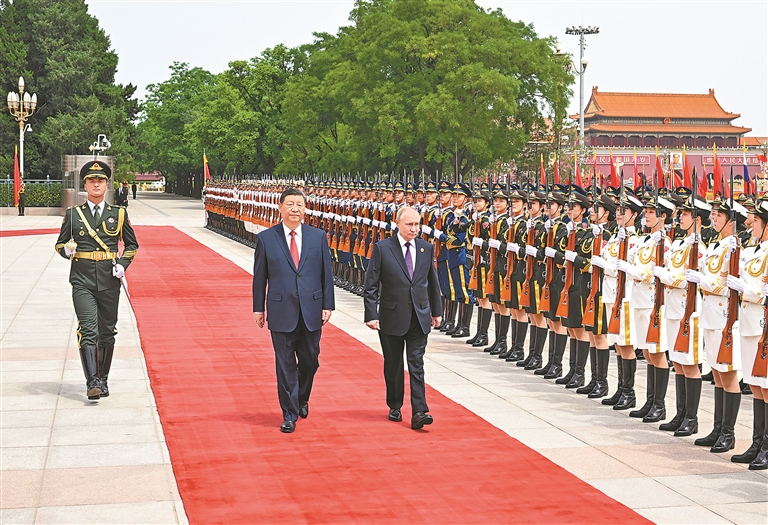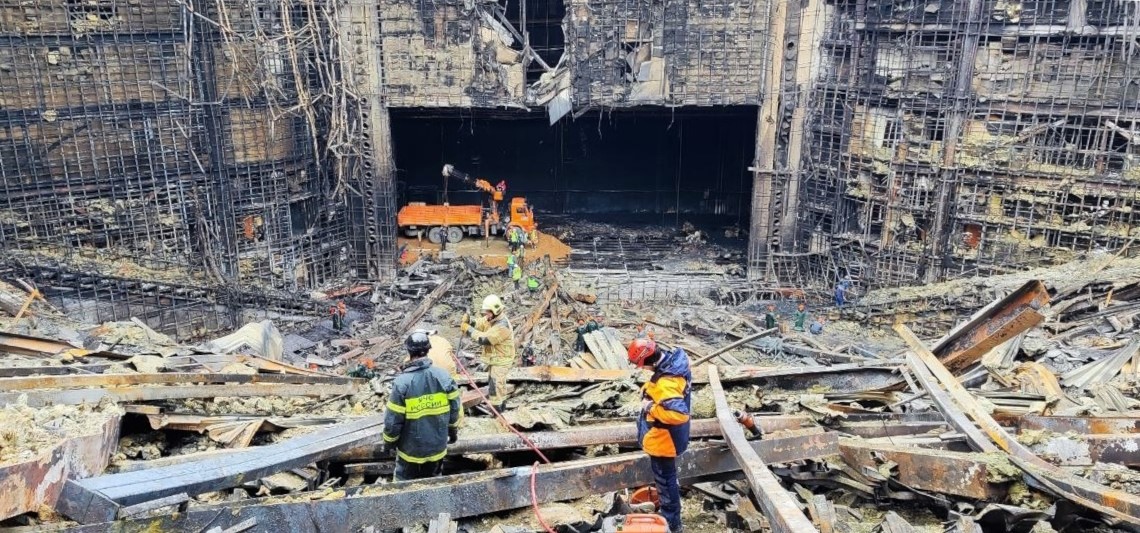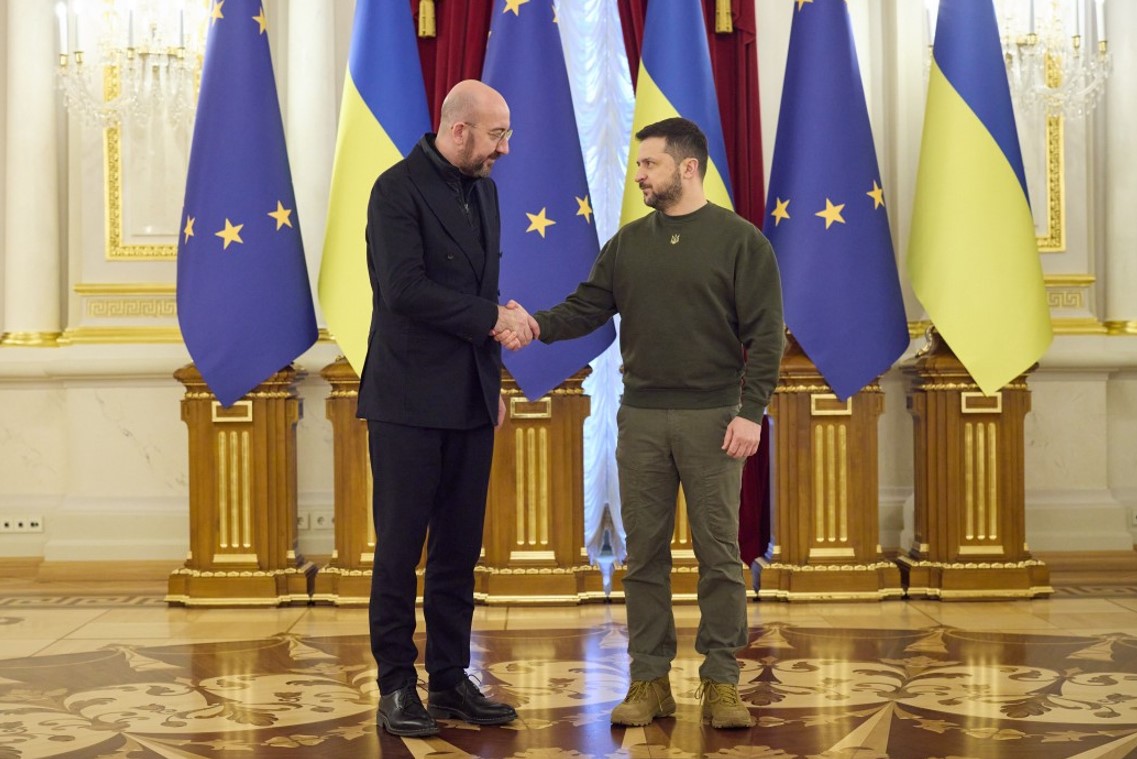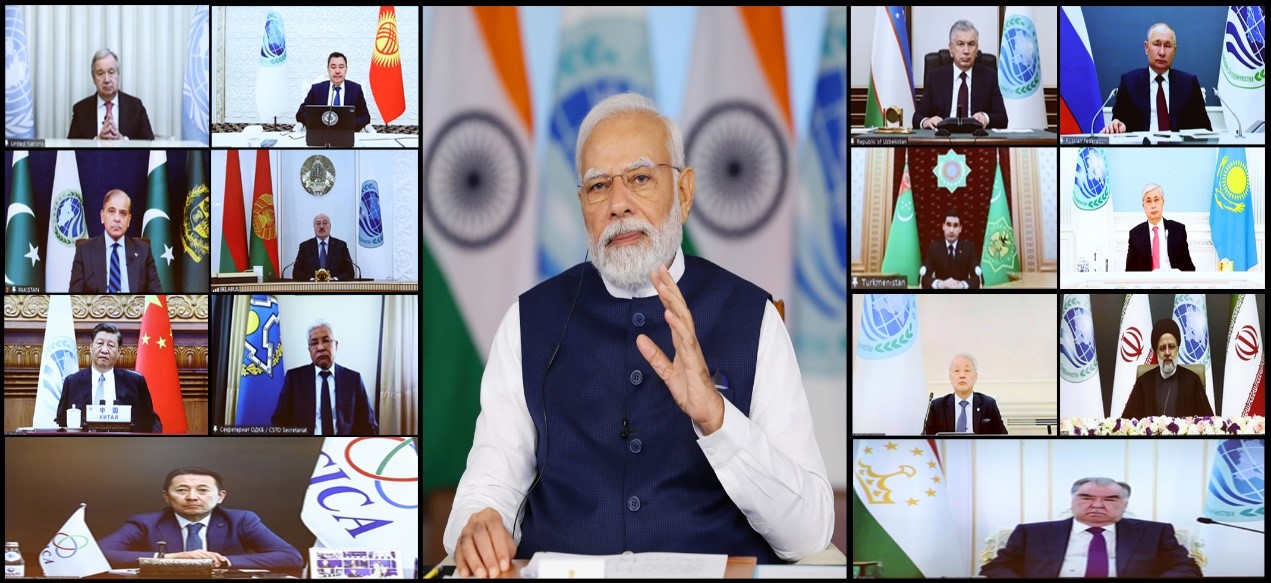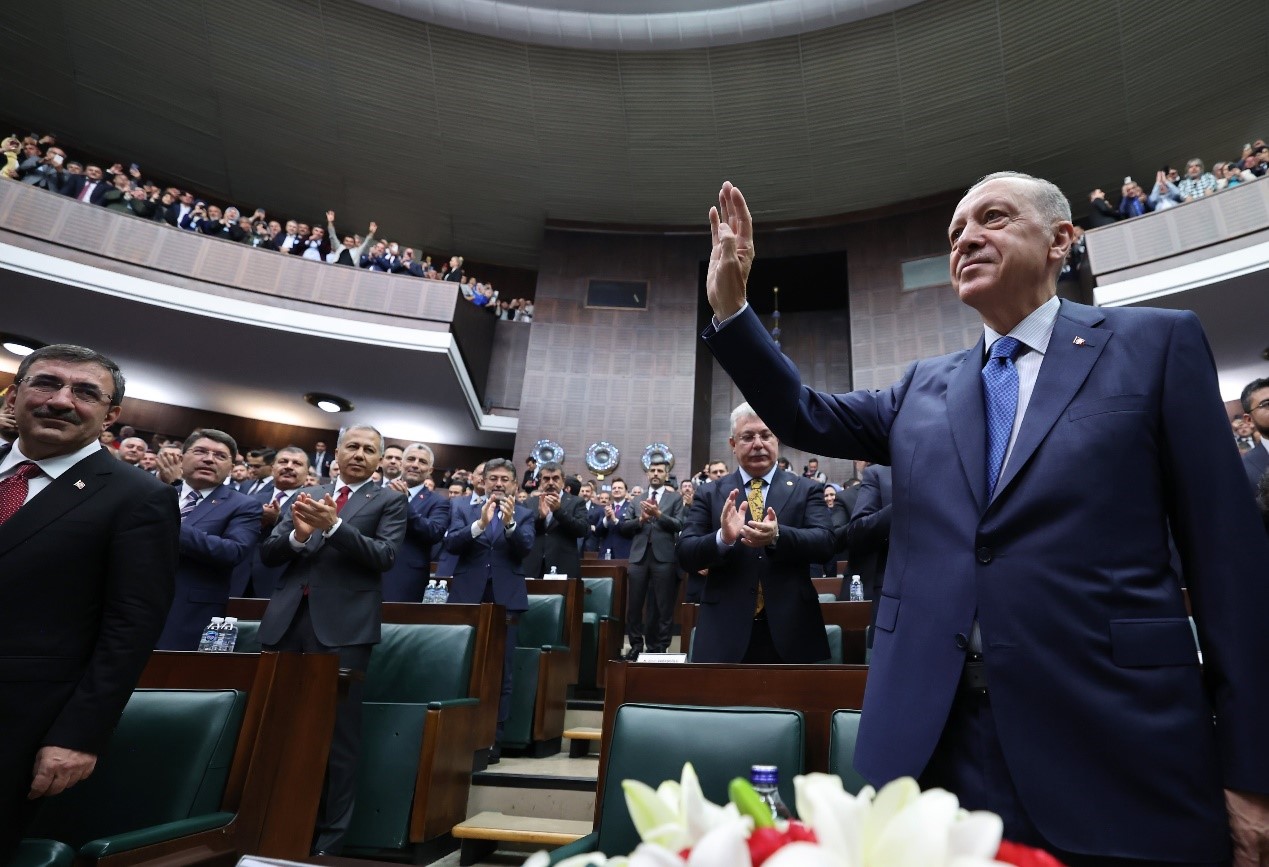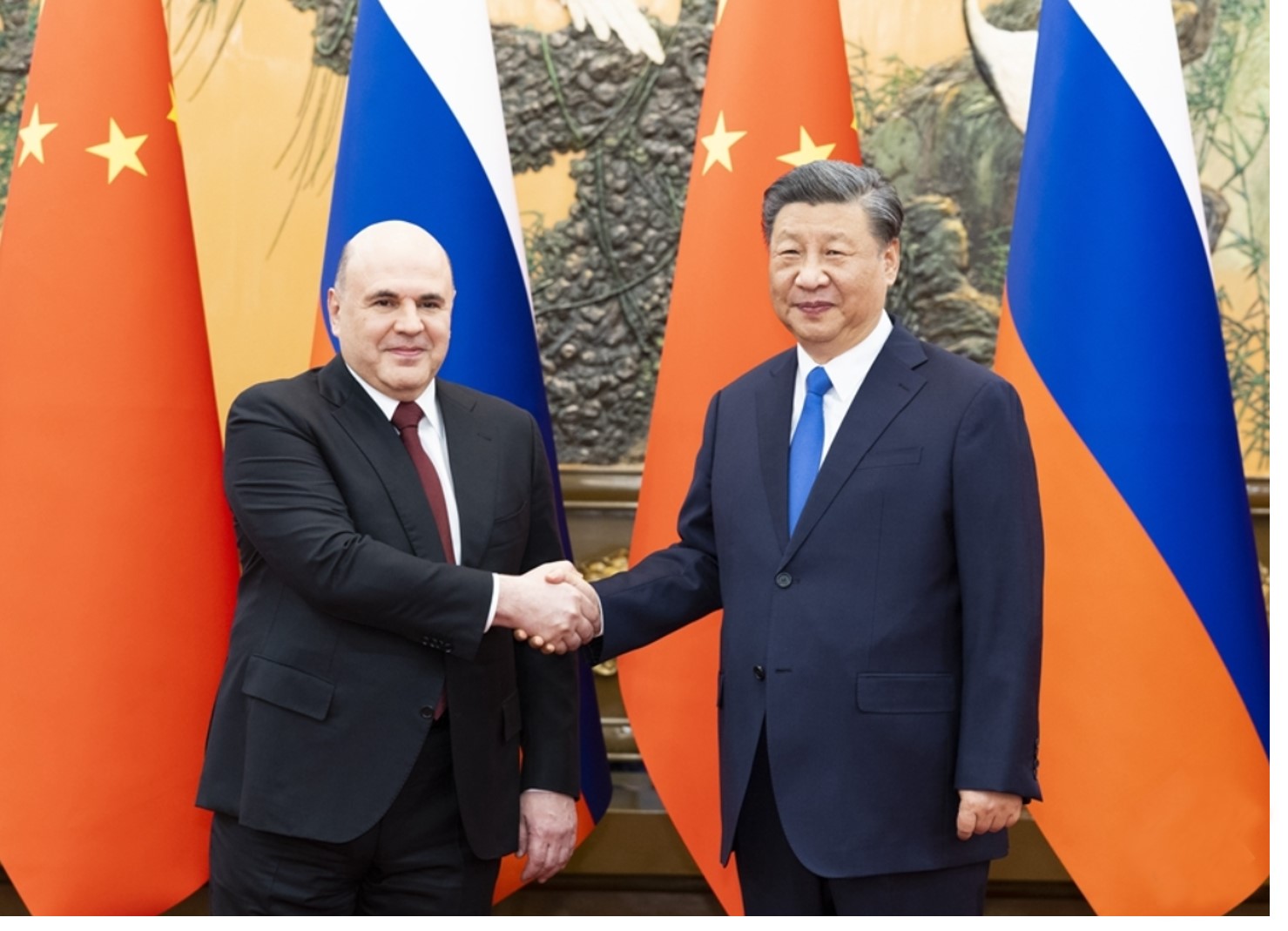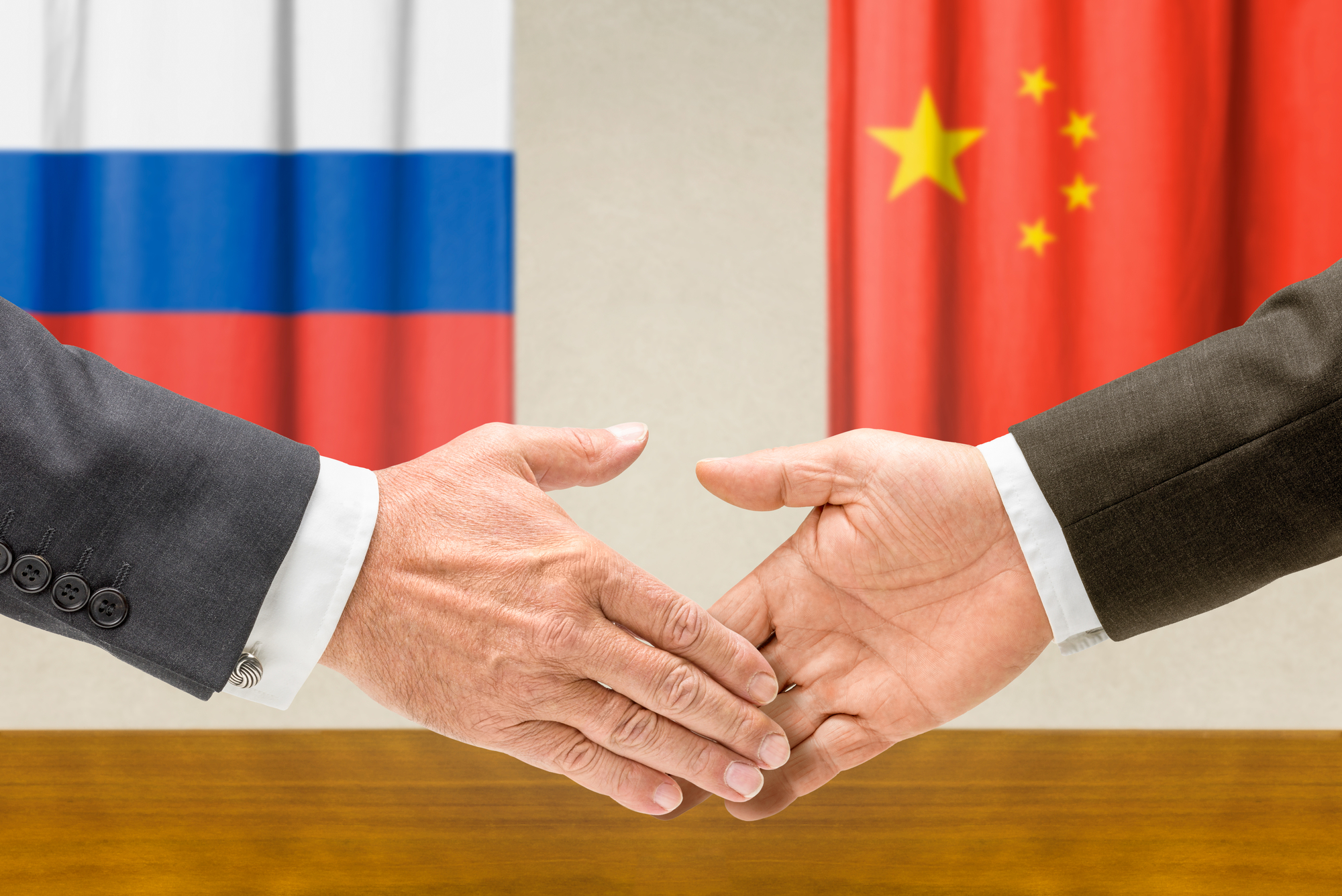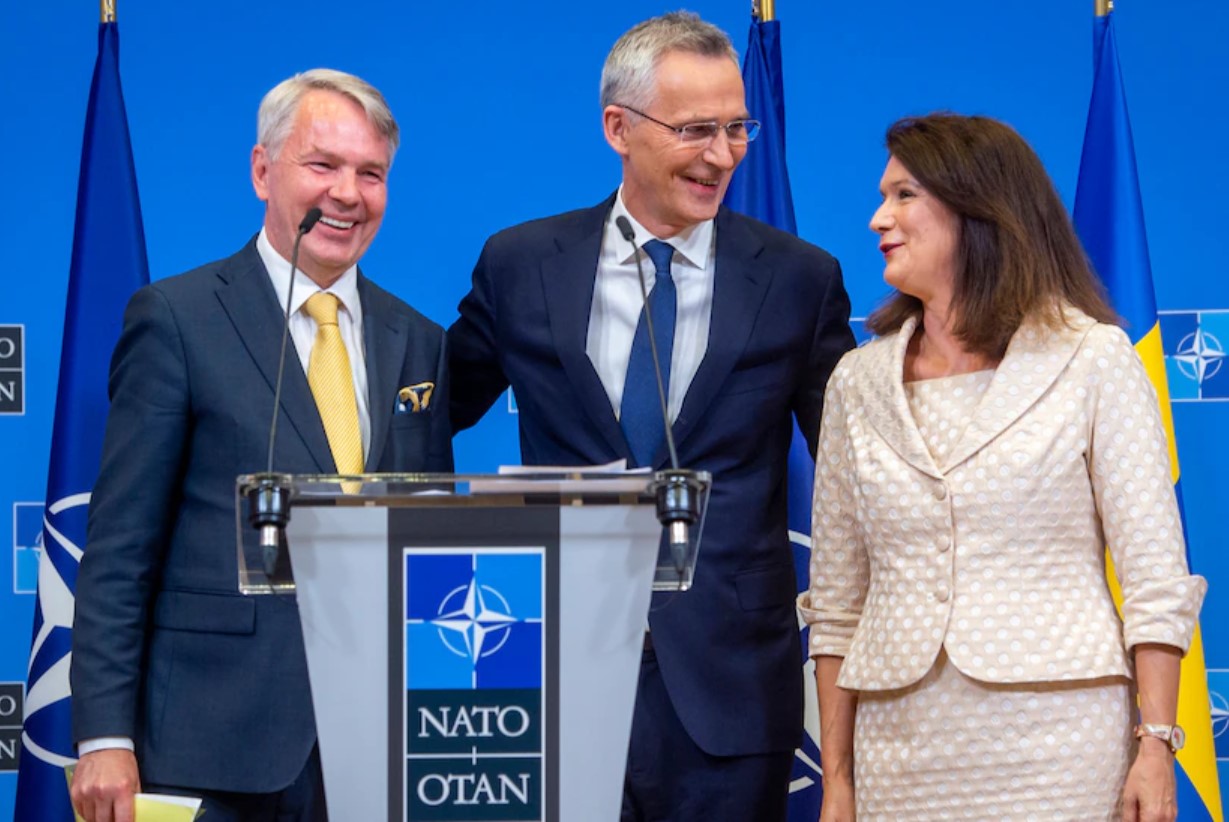The Wagner group, as an extension of Russian foreign policy and a mechanism for pushing its policy agenda while under immense international pressure, sets a precedent for other malign actors to follow, which could have larger implications for countries that reside in contested borders or are implicated in cold conflicts. Picture source: Ukrainian World Congress, July 27, 2023, Ukrainian World Congress, https://www.ukrainianworldcongress.org/wagner-recruits-belarusians-ready-to-fight-against-poland-and-lithuania/.
Prospects & Perspectives No. 47
After the ‘Coup’: The Future of the Wagner Group in Africa
By Riley Moeder
On June 23, the Russian Paramilitary Group Wagner marched on Moscow in an attempted insurrection against the Russian military and political leadership. This attempted coup was brought on by financial and personal losses that Wagner had sustained in the war in Ukraine. CNN has reported that as many as 21,000 Wagner troops have been killed and millions lost in revenue during the Russian offensive in Ukraine. To recoup these losses, Wagner has recently refocused its efforts on Africa, where it has historically profited from resource exploitation and security missions, bringing in up to US$1 billion in revenue from gold and diamond mines, according to Forbes. Videos surfaced in mid-August of Wagner frontman Yevgeny Prigozhin in Niger after a military junta had deposed democratically elected president Mohamed Bazoum. This suggests that Wagner seeks to reinvigorate its operations in Africa by increasing mining operations and capitalizing on political destabilization by offering security services to opposition leaders. This is representative of the group’s current business model, which involves a complex network of legitimate and shell companies that provide services ranging from counterterrorism, political support, and mining with the goal of maximizing profit.
The June 2023 attempted insurrection has called Wagner’s future into question. With an unclear path forward and Wagner’s uncertain relationship with Moscow given the recent attempted coup, the most likely move for Wagner is to continue to refocus on Africa and make political and economic gains in countries where they have been historically successful in spreading Russian influence and bringing in significant profit. At the time of writing, it is unclear the alleged death of Prigozhin in a plane crash in Russia will derail Wagner’s strategy in Africa. Russia’s civil aviation agency confirmed on August 24 that Prigozhin was on board a plane that crashed north of Moscow on August 23, killing all ten people on board.
Wagner In Africa
Africa is projected to be the most populous continent by the end of this decade, with a wide range of resources such as cobalt, diamonds, and oil coupled with minimal political stability. Wagner will reinvest in key operations in Africa, such as counter-terrorism support in Mali and diamond mining in the Central African Republic (CAR), to capitalize on its current operational autonomy and recoup its losses from the war in Ukraine. Wagner is currently active in 18 African countries and continues to actively recruit for its missions, with Prigozhin stating in a video posted on Telegram on August 21 that Wagner is collecting “Strongmen to make Russia even stronger and Africa freer.” In reality, Wagner in Africa continues to make headlines for human rights abuses, violence, and its ability to conduct irregular and hybrid war practices outside international norms. In the past, Wagner has served as an unofficial arm for Russian foreign policy, and as Moscow continues to look for ways to expand its global influence, it will likely continue to pursue African outlets due to its accessibility to strategic ports on the Red Sea, resources, and general lack of oversight from African governments. This expansion mirrors strategic rivalries from the Cold War.
Wagner operates under the protection of a legal gray area as private military companies (PMC) are not explicitly defined in any international or humanitarian law, making regulating its activities difficult. Wagner originally contracted operations to Dmitry Utkin, a former Russian intelligence officer, to build its military strategies to further Russian foreign policy in Africa. Since the attempted coup, the relationship between Utkin and Wagner has been strained due to Utkin’s connections to the Russian defense minister, who was a key target of the attempted insurrection, leaving the future of Wagner’s leadership in question (Utkin is also rumored to have died in the August 23 plane crash).
Resource Exploitation
Wagner’s main motivation is profit and power. As such, since the attempted coup in Russia, it has been strategically positioning itself back in Africa after a small number of troops were pulled from Africa to support the Russian offensive in Ukraine. As of now, Wagner has three main regions of focus to maximize its profits: the Central African Republic, Sudan, and the Sahel. Collectively, these counties and regions suffer from rebel or terrorist threats and are politically unstable, allowing Wagner to offer security support with minimal oversight in exchange for lucrative mining deals. Once in the country, Wagner creates a cyclical market of human rights abuses which increases rebel group recruitment. This then reaffirms a country’s need for security support and Wagner’s presence in the country. A prime example of this cycle occurred in the CAR. In June 2023, the Wagner group reaffirmed its relationship with the CAR when the country signed a military support deal with Russia to aid in combating an ongoing rebel conflict which can partially be attributed to the human rights abuses that Wagner has been found responsible for, including the Aïgbado and Yanga massacres in 2022 where 65 civilians were killed. This support, however, came at a very high cost: the CAR handed over direct access to the country’s diamond mines.
Political Meddling
Wagner relies on insecurity and the cultivation of exploitative relationships to maximize profit and extend Russian foreign policy. To employ this strategy, Wagner and, subsequently, Russia have capitalized on political meddling in military juntas and civilian coups by providing security assistance and access to heavy military artillery. This is done to extend Russian foreign policy and exploit power vacuums that are created when political shifts in power occur. The two most recent examples of this are Wagner’s support for the opposition leaders in Sudan, the Rapid Support Forces, and support for the Junta leaders in Niger in their overthrow of the democratic government. This, however, is not a novel move for Wagner, which actively supports Haftar, a Libyan politician and military officer who currently controls the eastern portion of Libya. Its support has stalled efforts toward national reconciliation.
The Ripple Effects
Wagner’s refocus on Africa will have metastasizing effects on local, regional, and international politics. Though Wagner’s future at this time is unclear, the Russian PMC has created a functional model for other PMCs, including future iterations of Wagner to capitalize on. Their recent activities will increase opportunities for Russia to expand its influence in the region, thus, increasing the possibility of further democratic backsliding, increased human rights abuses, and overall destabilization of the region. This focus of Wagner and Russia on Africa will have an impact not only on the United States but also its European and Asian allies as they work toward stabilization and capacity-building measures. Allied countries should therefore take sustainable measures to combat Russian influence, increase capacity building, and work toward incentivizing African countries to seek new partnerships away from Wagner and Russia.
The Wagner group, as an extension of Russian foreign policy and a mechanism for pushing its policy agenda while under immense international pressure, sets a precedent for other malign actors to follow, which could have larger implications for countries that reside in contested borders or are implicated in cold conflicts, such as China and Taiwan.
(Riley Moeder is a Senior Analyst, Special Initiatives, at the Newlines Institute for Strategy and Policy.)


